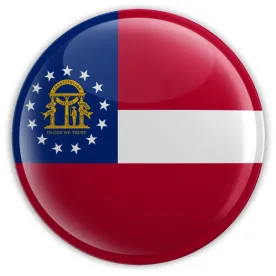If a defendant defaults in a TCPA case, can the plaintiff still seek class certification of his or her claims against that defendant? In Hobbs v. Entrevoice Virtual Sols., Inc., 2019 U.S.Dist. LEXIS 124574 (M.D.Ga July 25, 2019), the Middle District of Georgia just said “yes” – but not without qualification.
In Hobbs, the plaintiffs alleged that two defendants, Entrevoice Virtual Solutions, Inc. and its CEO, Joselyn Cornejo, violated the TCPA by soliciting them through their cell phones using an ATDS. However, both Entrevoice and Cornejo failed to answer the complaint and the Clerk entered default. Plaintiffs then moved for class certification of their TCPA claims before entry of default judgment.
Presented with this interesting procedure posture, the court apparently asked itself two questions: Is class certification possible in the default context? And, even if it is, should the court certify a class against a defaulted defendant if the court may lack personal jurisdiction over that defendant? After considering the issues sua sponte, the Hobbs court provided mixed answers.
As to the first issue, i.e., whether class certification is even possible against defendants-in-default, the court noted that the Eleventh Circuit “has not . . . squarely addressed” the issue. That said, the court determined that certification is possible under these circumstances by relying on a single, unpublished decision from the Second Circuit, which the court construed as holding that “a district court abuse[s] its discretion by denying [class certification] against a defendant in default.” SeeActicon AG v. China N.E. Petroleum Holdings Ltd., 687 F. App’x 10, 12 (2d Cir. 2017). In Acticon, the Second Circuit rejected arguments that a class could not be certified against defaulting parties because “the defendants had ample notice that the action was a putative class action” based on the complaint’s caption and previously denied motions for certification.
As to the second issue, interestingly, the court found it appropriate not to leave the issue of personal jurisdiction subject to later collateral attack, and therefore felt compelled to consider its jurisdiction over the defendants prior to taking the next step of certifying an entire class of TCPA claims against them. According to the court, it is “prudent” to address personal jurisdiction in cases involving class claims and a defaulting defendant because “a defendant may defeat subsequent enforcement of a default judgment in another forum by demonstrating that the judgment issued from a court lacking personal jurisdiction.”
Ultimately, the court concluded it lacked personal jurisdiction over Cornejo, but that it did have personal jurisdiction over Entrevoice. Therefore, the court dismissed Cornejo but directed the plaintiffs to submit a renewed motion for class certification as to Entrevoice within twenty-one days.
This is an interesting “split-the-baby” decision by the Hobbs court. On the one hand, the court holds that it has the power to certify a class action against defendants-in-default, despite citing no compelling authority in support of that power. Yet, the court constrained its flexing of that judicial muscle in order to protect the finality of its ultimate judgment by sua sponte considering whether it had personal jurisdiction over the defendants.
As Hobbs progresses, it will be interesting to see if the Eleventh Circuit has an opportunity to opine on the issue of certification where there are defaulting parties – especially since the answer necessarily involves important questions of “fair notice” to the defaulting defendants. In the meantime, courts choosing the certification route should take note of the Hobbscourt’s “prudent” decision to first consider whether jurisdiction over the defaulting defendants actually exists before taking up any requests for class certification.
As always, we will keep TCPAWorld apprised of developments. Stay tuned.




 />i
/>i

